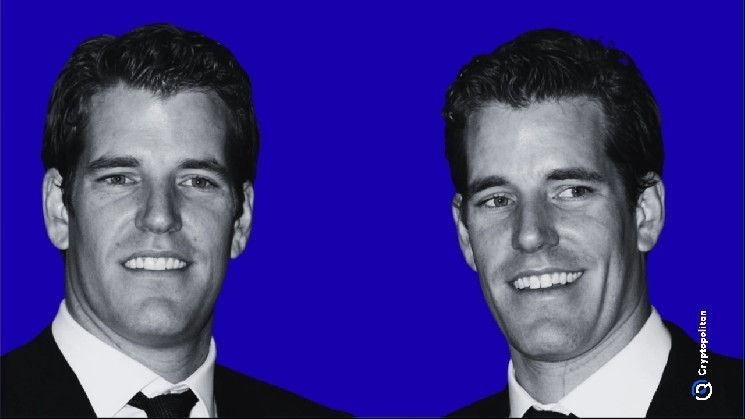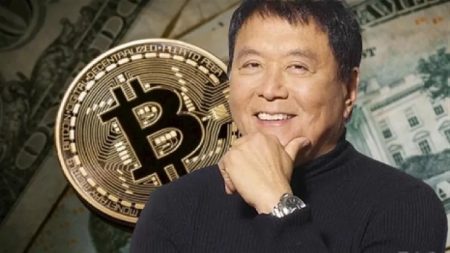Crypto Titans Clash: Winklevoss Brothers Battle Trump’s CFTC Nominee in High-Stakes Regulatory Showdown
Billionaire Twins Leverage Political Influence to Shape Crypto Regulation
In an unprecedented power struggle that has sent shockwaves through both Washington and Wall Street, crypto moguls Tyler and Cameron Winklevoss have publicly locked horns with Brian Quintenz, President Trump’s nominee to lead the Commodity Futures Trading Commission (CFTC). This dramatic confrontation between two of Trump’s wealthiest supporters and his chosen regulatory candidate has exposed deep fissures in the cryptocurrency policy landscape just as the industry faces crucial regulatory decisions.
The conflict erupted into public view last week as the twins prepared their exchange, Gemini Space Station, for its market debut. What began as private communications quickly escalated when Quintenz published messages from Tyler Winklevoss on social platform X, revealing the entrepreneur’s frustration over what he described as “seven years of lawfare trophy hunting” by the Biden administration against their company. “It’s outrageous what they did to us,” Tyler wrote in the July messages, demanding assistance from Trump’s nominee in what appeared to be a call for regulatory relief.
The timing of this clash is particularly significant as it coincides with Gemini’s initial public offering, which raised $425 million but has since experienced turbulence in the markets. After a brief initial surge, Gemini shares tumbled more than 20%, falling below the $28 IPO price—a concerning development for a company that has struggled to maintain profitability while competing against industry giants like Coinbase. Despite these challenges, the Winklevoss brothers maintain overwhelming control of their company, holding approximately 75 million shares and 94.7% of the voting power.
From Harvard Lawsuits to Crypto Kingpins: The Winklevoss Brothers’ Rise to Power
The 44-year-old twins have never shied away from controversy. Their combative approach to business first captured public attention during their infamous legal battle with Mark Zuckerberg over Facebook’s origins—a dispute that eventually netted them $65 million in cash and stock, and was dramatically portrayed in the film “The Social Network.” This confrontational mindset has continued throughout their evolution into cryptocurrency pioneers.
Their early faith in digital assets proved prescient when they purchased substantial amounts of Bitcoin in 2012, when the cryptocurrency traded below $10. By 2013, they attempted to launch the first Bitcoin ETF, though regulatory hurdles from the Securities and Exchange Commission temporarily blocked their vision. Undeterred, they founded Gemini in 2014, establishing themselves as early institutional players in the nascent cryptocurrency marketplace.
This history of both conflict and innovation has shaped the twins’ approach to regulation. Critics, including Lee Reiners, a lecturing fellow at Duke University, have characterized their current opposition to Quintenz as “a total temper tantrum” motivated by a desire for “revenge” rather than coherent policy objectives. What makes this conflict particularly puzzling to industry observers is Quintenz’s reputation as a crypto-friendly regulator, leading many to question why the Winklevosses would target someone seemingly aligned with their interests.
Political Influence and Financial Firepower: The Brothers’ Growing Washington Presence
The Winklevoss twins have significantly ramped up their political involvement in recent years, strategically deploying their considerable wealth to shape crypto regulation. They have directly supported Trump’s presidential campaign while simultaneously funneling nearly $5 million to pro-crypto advocacy groups focused on Congressional races. In a particularly noteworthy move last month, they donated $21 million worth of Bitcoin to the Digital Freedom Fund, a newly established super PAC dedicated to advancing cryptocurrency interests alongside Trump’s agenda.
Their political capital received a substantial boost when Trump himself publicly praised them at a Bitcoin event last year, referring to the twins as “male models with a big, beautiful brain”—a remark that signaled the former president’s evolution from cryptocurrency skeptic to enthusiastic supporter. This endorsement has only enhanced the brothers’ influence within Republican circles as they position themselves as key voices in shaping future financial regulations.
Further cementing their Washington presence, the twins recently collaborated with White House crypto advisor David Sacks, Donald Trump Jr., and other influential investors to establish an exclusive private club called Executive Branch. With an extraordinary entry fee of $500,000 plus ongoing dues, this venture stands as one of the most expensive political networking venues in the capital, designed to facilitate connections between cryptocurrency advocates and policy makers.
Nomination Fallout: White House Reconsiders CFTC Leadership
The Winklevoss brothers’ campaign against Quintenz has created significant complications for the Trump administration’s regulatory appointments. As confirmation proceedings have stalled, the White House has begun considering alternative candidates to lead the CFTC, an agency with critical oversight responsibilities for cryptocurrency markets.
Among the names now being evaluated are Michael Selig, who currently serves as chief legal counsel for the SEC’s cryptocurrency task force, and Tyler Williams, an advisor to Treasury Secretary Scott Bessent with previous experience at crypto investment firm Galaxy Digital. Both candidates bring substantial digital asset expertise to the table, potentially offering different approaches to the complex regulatory questions facing the industry.
This unexpected detour in the nomination process underscores the growing influence of cryptocurrency interests in Washington’s regulatory apparatus. The ability of prominent industry figures like the Winklevoss twins to potentially derail a presidential nomination demonstrates how the balance of power is shifting as digital assets become increasingly mainstream financial instruments requiring sophisticated oversight.
Regulatory Crossroads: Industry Watchers Question Motivations Behind the Conflict
The bitter dispute between the Winklevoss brothers and Quintenz has left Washington insiders perplexed about the twins’ ultimate objectives. Many question why two of Trump’s most financially significant supporters would work so aggressively to undermine one of his administration’s regulatory nominees, particularly one with pro-cryptocurrency credentials.
Some analysts suggest this conflict represents more than personal animosity—it signals a fundamental debate about the future of cryptocurrency regulation in America. The twins appear determined to influence not just who leads key regulatory agencies, but how those agencies approach digital asset oversight. Their actions reflect a growing impatience among industry leaders with the pace of regulatory reform, even as the new administration prepares to take office.
The outcome of this high-profile confrontation will likely have far-reaching implications for cryptocurrency markets and regulatory policy. As the White House navigates this unexpected obstacle to its regulatory appointments, market participants remain watchful for signals about the future direction of digital asset oversight. The Winklevoss brothers’ willingness to challenge their political allies demonstrates how seriously they take regulatory issues—and how determined they are to shape the rules governing their industry, regardless of personal or political relationships.
This unfolding drama highlights the complex intersection of wealth, political influence, and regulatory policy at a pivotal moment for cryptocurrency adoption. As digital assets continue their integration into mainstream finance, the question of who controls their oversight—and under what philosophy—remains central to both market participants and policymakers alike.















